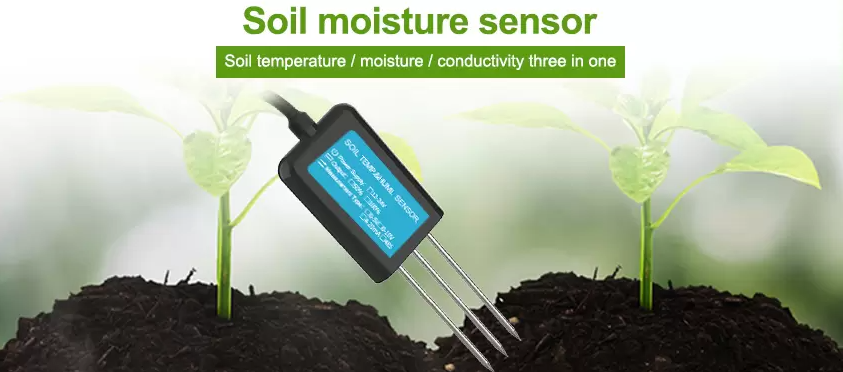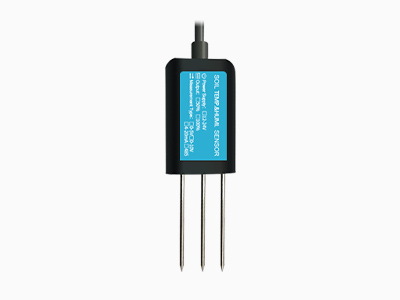Learn about soil moisture sensors
Soil moisture detector, also known as soil moisture sensors or meters, play a crucial role in providing accurate measurements of soil moisture content. Soil moisture is a critical factor that affects plant growth and crop productivity. Understanding and managing soil moisture levels is essential for farmers to optimize irrigation practices and make informed decisions about planting and harvesting. This article aims to highlight the importance of soil moisture detectors and their role in modern agriculture.

The importance of soil pH sensors
Measuring Soil Moisture
Soil moisture detectors are devices designed to measure the amount of water present in the soil. They employ various technologies, such as capacitance, tensiometry, or time domain reflectometry, to analyze the moisture content accurately. By inserting the probes into the soil at different depths, these detectors can provide valuable data on soil moisture levels throughout the root zone.
Optimizing Irrigation Practices

Proper irrigation is vital for plant growth and development. Over-watering or under-watering can have detrimental effects on crops, leading to reduced yields, nutrient leaching, or water wastage. Soil moisture detectors enable farmers to monitor soil moisture levels in real-time. By regularly assessing the moisture content, farmers can determine when to water their crops and how much water to apply. This knowledge allows for precise irrigation scheduling, ensuring that plants receive adequate moisture while avoiding unnecessary water usage.
Preventing Water Stress and Drought Damage
Water stress occurs when plants do not receive enough water to meet their physiological needs. Drought conditions can severely impact crop production, causing withered plants, leaf curling, and even crop failure. Soil moisture detectors help detect early signs of water stress by providing information on soil moisture deficits. Farmers can use this data to implement supplemental irrigation strategies, adjust watering frequencies, or apply drought-tolerant crop varieties. By preventing water stress and mitigating the effects of drought, soil moisture detectors contribute to improved crop resilience and higher yields.
Mitigating Waterlogging and Soil Erosion
Excessive soil moisture can lead to waterlogging, where the soil becomes saturated with water, depriving plant roots of oxygen. Waterlogged conditions can impede root development, reduce nutrient uptake, and promote the growth of disease-causing organisms. Soil moisture detectors can help farmers identify areas with high soil moisture levels and adjust irrigation practices accordingly. By avoiding over-watering and managing drainage systems effectively, farmers can mitigate the risks of waterlogging and prevent soil erosion, ensuring optimal growing conditions for their crops.
Supporting Precision Agriculture
Soil moisture detectors play a crucial role in precision agriculture, an approach that aims to optimize resource use and maximize productivity. These detectors can be integrated with advanced data collection systems and satellite imagery, allowing farmers to map soil moisture variations across their fields. By obtaining precise information on soil moisture patterns, farmers can implement site-specific irrigation strategies, tailor fertilizer applications, and manage crops more efficiently. This promotes sustainable farming practices and reduces environmental impact.
Conclusion
In conclusion, soil moisture detectors are invaluable tools in modern agriculture for assessing and managing soil moisture levels. By accurately measuring soil moisture content, these detectors enable farmers to optimize irrigation practices, prevent water stress and drought damage, mitigate waterlogging and soil erosion, and support precision agriculture. Integrating soil moisture detectors into farming systems allows for informed decision-making, efficient resource utilization, and enhanced crop production. It is crucial for farmers and agronomists to embrace the use of soil moisture detectors as part of their commitment to sustainable farming and increasing agricultural resilience in the face of changing climate conditions.
